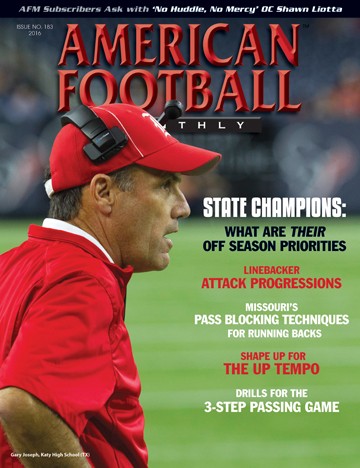Article CategoriesAFM Magazine
|
Leadership Strategiesby: Jeff HancockVidalia High School © More from this issue Jeff Hancock is the head coach at Vidalia High School in Louisiana. He recently took part in AFM’s “Leadership Survey”. Included are his responses: How do you develop responsible and respected team captains? I do this because they are seniors. It’s their team, not mine, and not the assistants, nor the underclassmen. I put a lot on them, empowering them to make some decisions for the direction of the program. What appropriate punishment for rule breakers should be, which color uniform to wear that week,....The full article can only be seen by subscribers.
|
|
|||||||
| HOME |
MAGAZINE |
SUBSCRIBE | ONLINE COLUMNISTS | COACHING VIDEOS |
Copyright 2025, AmericanFootballMonthly.com
All Rights Reserved





